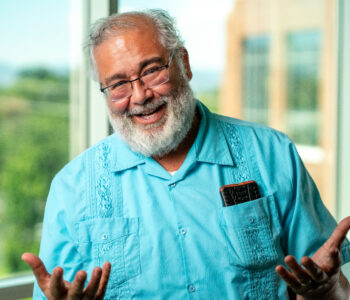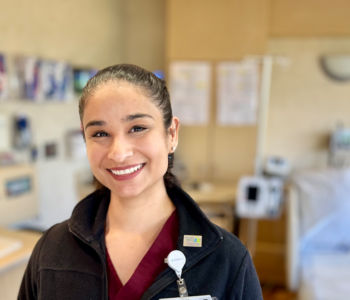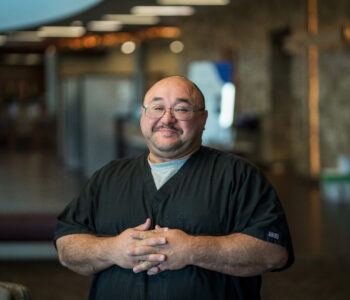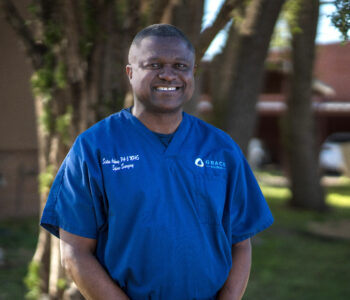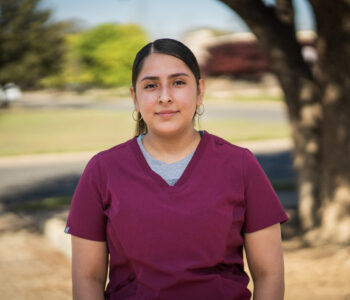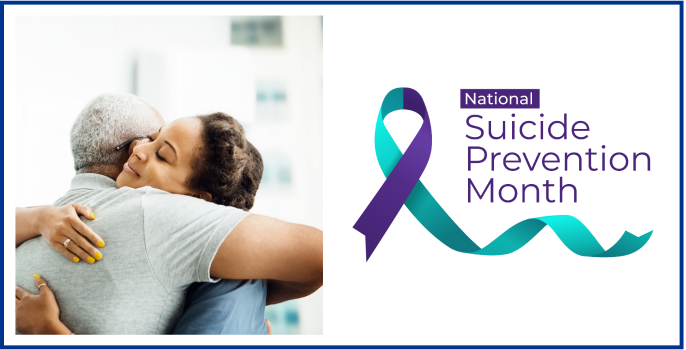 Benefits Spotlight
Benefits Spotlight
Fostering a supportive workplace culture where it’s okay to not be okay
Working in healthcare can be hard, and as caregivers, we all face tough times and challenges that can feel overwhelming. At Providence, we support caregivers’ mental health with resources like counselling, suicide prevention training, mental health first aid, and encouraging open conversations and proactive measures.
24/7 mental wellness support for caregivers and their families
Mental health is just as important and critical to well-being as physical health. That’s why Providence offers eligible caregivers and their families free and confidential mental wellness resources and support across the mental and emotional health spectrum for challenges like stress, sleep, anxiety, depression and relationship issues.
Supports include:
- Up to 25 free therapy sessions per family member per year
- Care offered virtually, in-person and onsite
- Personalized digital care plans
- On-demand courses and virtual listening sessions
In addition, onsite counselors are available at some Providence locations and virtual counselors are available to all caregivers in partnership with Optum and Lyra. Counselors can provide one-on-one support and coaching for a variety of issues. Chaplains are also a resource to caregivers of all faiths and spiritual practices, as well as their families, in person or via TeleSpiritual Health. Finally, caregivers have quick access to licensed therapists and mental health coaches through our Choose Well benefits program. No matter what you’re going through, you don’t have to face it alone.
Margie, who works with us in Southern California, highly recommends taking advantage of the Providence mental wellness benefits. “I see a marriage counselor through Lyra, and it’s truly a blessing,” she shares. “Counseling is very expensive nowadays. I get 25 free sessions and my husband does, too. We can go every week if we want, and the amount of money that we’re saving is amazing. I have recommended it to many people, and a lot of them are taking advantage of it. I am beyond grateful for this benefit.”
ECPR – Suicide Prevention Training
There is a critical need for widespread suicide prevention training across the general population. According to the Centers for Disease Control and Prevention (CDC), one person dies by suicide every 11 minutes in the U.S. and it is a leading cause of death for people of all ages. While there is significant concern for the mental health needs in our patients and communities, the risk of suicide is not localized to our patients. The Providence family of organizations is committed to offering a comprehensive approach to caregiver suicide prevention education.
Our peer-focused Suicide Prevention Training, called Emotionally Connect, Partner, and Respond (ECPR), empowers our caregivers to make a difference in their community and in the workplace. Through a 30-minute, self-paced, online training, caregivers learn how to support and respond to their peers, colleagues, family members and community members that may be experiencing a mental health concern. Caregivers can also opt into a 50-minute virtual live training if they wish to have a more interactive experience.
“The truth is we spend a majority of our time at work,” says Dr. Gabe Corpus, licensed clinical psychologist and a leader of the virtual suicide prevention training through Lyra Health. “What this means is that our fellow caregivers are in a really great position to potentially notice and intervene when a coworker is going through some sort of distress—and help them take that first step toward getting the care and support they need.”
The training provides information about potential warning signs, dispels myths, shares available resources and gives caregivers the language they need to feel comfortable having a conversation about suicide. While this training is not required, it’s highly encouraged and incentivized by providing health incentive rewards points through the caregiver well-being benefit program.
Mental Health First Aid Training
For caregivers who complete the Suicide Prevention Training and want to take the next step, Providence partners with the National Council for Mental Well-Being to offer Mental Health First Aid Training (MHFA). MHFA is a full-day, live training (offered in-person or virtually) that goes beyond prevention into crisis training. Trainees learn to identify, understand and respond to signs of mental health crisis and severe substance abuse challenges.
Mental health for teens
Our nation’s youth are struggling with mental health. According to Mental Health America (MHA), 3.1 million young people ages 12-17 deal with periods of major depression and 78% of young people ages 11-17 who took MHA’s depression screen scored positive for moderate to severe depression. Suicide is the second leading cause of death for people ages 10–24 (CDC) and suicide rates are higher among those who face health disparities.
Teens of Providence caregivers have access to the same mental wellness support as their parents, including access to 25 free therapy sessions per year. We also offer to all teens Work2BeWell, which focuses on raising awareness about mental health and suicide among teens. This includes access to the free Youth Mental Health Curriculum inspired by the film Hiding in Plain Sight: Youth Mental Illness. Designed to be facilitated by educators in the classroom, the curriculum provides teens a unique opportunity to learn about mental health, mental illness, and its impact on youth, their peers, teachers and families.
Another initiative is Talk2BeWell, a podcast series hosted by Robin Henderson, Psy.D., chief executive for behavioral health at Providence Oregon. Each episode features teens talking about different mental health topics, including breaking the stigma of suicide, mental illness, and wellness and prevention.
Listen to Talk2BeWell Episode 56: Suicide Prevention
A culture of conversation
Providence prioritizes fostering a culture that breaks the stigma around mental health conversations. Many of us know it’s crucial, but not everyone feels comfortable asking a colleague if they’re okay. To help, we offer a host of resources and workshops that enable caregivers to become more confident in discussing mental health and checking in with their colleagues, and provide advice on how to take action when needed.
Additional suicide prevention resources
In honor of Suicide Prevention Month and to encourage wellness year-round, here are helpful resources for suicide prevention and mental health support:
- Call, text or chat 988, the Suicide & Crisis Lifeline
- Text HOME to 741741, the Crisis Text Line
- Download apps like the Virtual Hope Box, which has tools for coping, relaxing, distracting and positive thinking
- Find a support organization:
- The Trevor Project (LGBTQ+ focus)
- BEAM: Black Emotional and Mental Health Collection (Black youth and adult focus)
- The Jed Foundation (Youth focus)
- The Defensive Line (Black, indigenous, people of color youth focus)
There are also resources for those who have been impacted by suicide, including the Alliance of Hope for Suicide Loss Survivors and other local support groups




